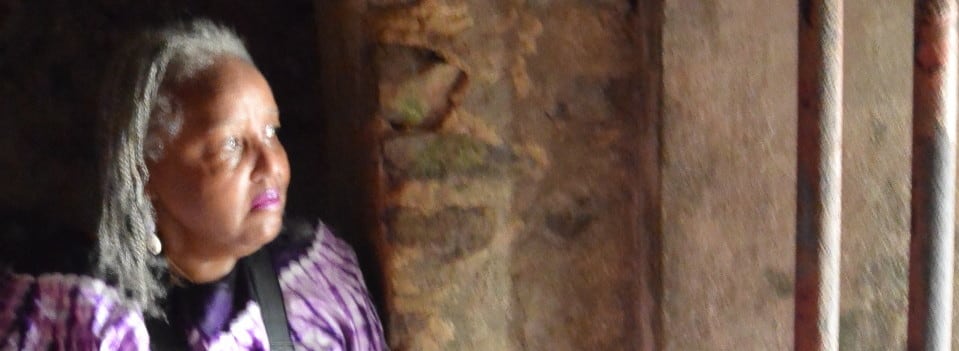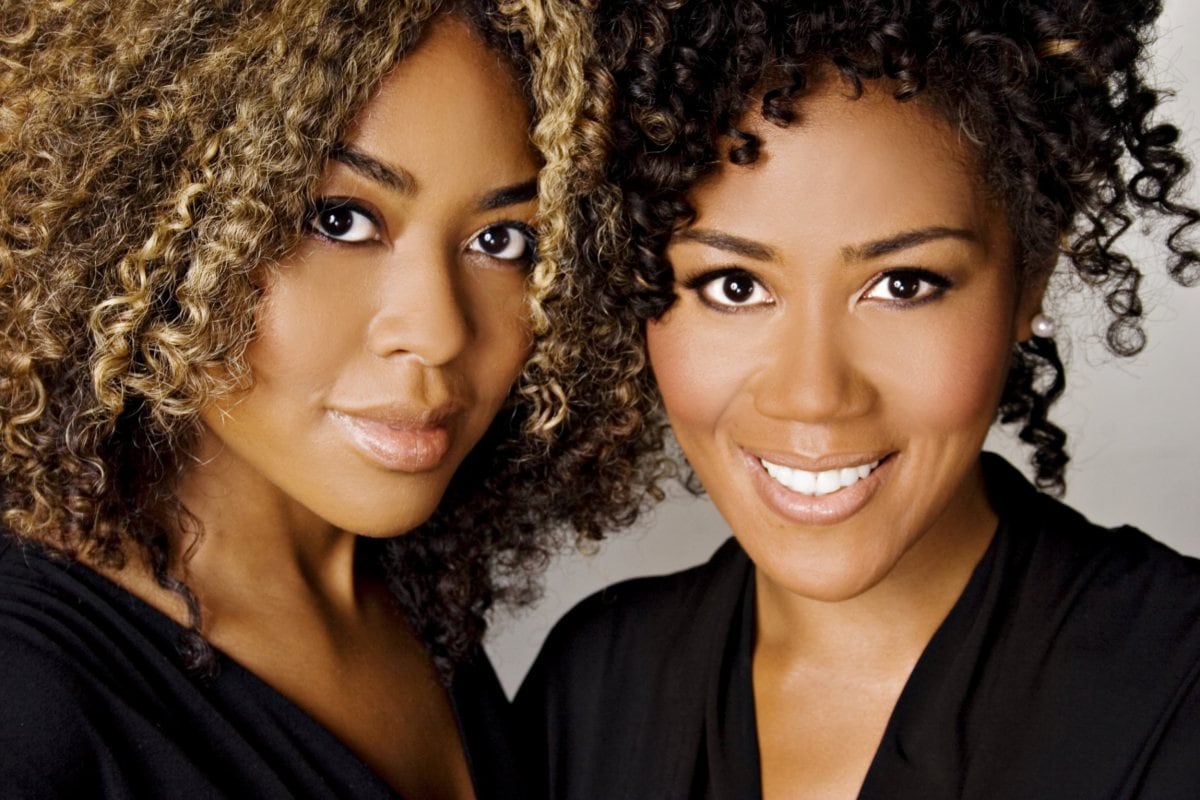
“Mom, you told me they wouldn’t come back,” a crying boy tells his mother after being subjected to wrongful raids and invasive questions more than two dozen times at home and school. “I’m still trying to make it up to him,” his mother said, “even though I didn’t do anything wrong.” (Photo: Daisy-Daisy/iStock)
An anonymous caller repeatedly makes false reports against a mother who hasn’t done anything wrong, and officials keep falling for it. The dozens of raids, at all hours of the day and night, are affecting her child’s mental health.
By Eli Hager, ProPublica
It was 5:30 a.m. Flashlights beamed in through the windows of the ground-floor apartment in East Flatbush, Brooklyn. Police officers and child welfare caseworkers were ordering a woman to open her front door.
When she did, the first thing she saw was that the police had their guns drawn. Her hands flew up into the “don’t shoot” position; she was well aware of the recent stories of cops “shooting first and asking later.” She prayed that her 7-year-old son was still asleep in his room.
“I was beyond scared. I literally started shaking,” said L.B., the mom, who is Black and asked to be referred to by her initials for her child’s safety and privacy.
Enabled by the police officers’ show of force, the caseworkers from the Administration for Children’s Services, New York City’s child welfare agency, entered L.B.’s apartment without a warrant that day in January 2021. Before she knew it, they were scrutinizing the contents of her refrigerator and cabinets, examining her bed and bathroom, and rifling through her personal belongings. They also had her lift up her son’s shirt so they could inspect his torso.
They found nothing. The boy was safe and unharmed, living in a clean, well-organized home with his mom and his adult sister, according to case records.
The allegations against L.B., made by an anonymous caller at 4:45 a.m. that day, were false. These included that she was a stripper (she worked at a home for people with disabilities); that she used drugs (none were found, and a drug test was negative for all substances); and that an abusive man lived with her and that she owned “machine guns” (after an exhaustive search and interrogation, both claims were deemed baseless).
In fact, L.B. has never been found to have committed any type of child maltreatment, ACS and court records show.
Yet the anonymous caller, whom L.B. believes to be a former acquaintance with a grudge, has continued to dial in to New York’s state child welfare hotline. Each time, this person or possibly people make outlandish, often already-disproven claims about her, seeming to know that doing so will automatically trigger a government intrusion into her domestic life.
And ACS obliges: Over the past three years, the agency either has inspected her home or examined and questioned her son at school more than two dozen times. Caseworkers have sought a warrant for only three of these searches, most recently in August. All of those requests have been rejected by judges, according to court records.
Still, it keeps happening, and it’s nearly always the same routine, records show. The caseworkers demand entry into her apartment, ringing her doorbell and, embarrassingly, sometimes those of her neighbors as well, at all hours of the day and night. They observe her child’s unclothed stomach and thighs, and sometimes take pictures. And they interrogate him without her consent, covering topics like whether she has sex around him.
At one point he said to her, crying, “Mom, you told me they wouldn’t come back,” L.B. said.
“I’m still trying to make it up to him,” she added, “even though I didn’t do anything wrong.”
L.B. this week filed a federal lawsuit against the commissioner of ACS and the city of New York, arguing that her Fourth Amendment right against unreasonable searches and seizures has been repeatedly violated by the agency’s warrantless incursions into her family’s private sphere. She is not primarily alleging that caseworkers committed specific unlawful acts, although several ACS staff members are also named in the suit. Rather, her contention is that three years of the same type and scope of investigation — no matter the source or credibility or repetitiveness of the accusations against her — is indiscriminately and thus unconstitutionally invasive.
“Overpolicing Parents: How America’s CPS Dragnet Ensnares Families”
Legal aid lawyers in New York had said that more lawsuits like this one might be coming after a ProPublica and NBC News investigation last year found that ACS caseworkers search more than 50,000 typically low-income households every year, obtaining a warrant less than one half of 1% of the time. (L.B. is represented by Brooklyn Defender Services as well as a private law firm, and her complaint cites our reporting.) The agency finds a safety situation requiring removal of a child from a home in only 4% of these cases.
ProPublica’s investigation tracked the case of Ronisha Ferguson, a Bronx mother who sued the city of New York after ACS removed her children from her because she refused to let caseworkers search her apartment without a warrant. (Court records indicate that the city this August agreed to settle that case with Ferguson.)
In response to a detailed list of questions, an ACS spokesperson did not address any aspect of how the agency has handled L.B.’s case. She said that ACS is required under New York law to investigate all reports of child maltreatment that are forwarded from the state hotline, including ones that are anonymous, and that every investigation must include “evaluating the home environment.” The agency has “no discretion” if the hotline operator deems the call worth passing along, she said.
L.B.’s attorneys counter that caseworkers, once they have observed a child to be safe, actually do have discretion under state law not to conduct the same full search that they have completed before. Continuing to follow these procedures over and over causes concrete harm, they say.
L.B.’s child now suffers from severe anxiety, a doctor’s note confirms, which she said is the direct result of ACS’ constant intrusions. (He has even asked her to have the doorbell dismantled.) Her employment has been affected, including when she had to take multiple months of unpaid leave to make sure that she was available for her son. Her landlord has complained to her that the situation is troubling other tenants, causing her to consider moving to a different neighborhood even though she has lived in her apartment for a decade.
Yet for a long time, it was a struggle for her to fight back. When caseworkers arrived at her door, she’d allow them to enter in part because they had the power to remove her son from her custody. They also never told her, she said, that without her consent, they would need a warrant.
They often told her that letting them in was the only way to get them to stop coming, she said.
Finally, in 2022, a co-worker convinced her that she had the right to say no. Anxiously, she started doing just that.
That February, ACS, for the first time, applied for a warrant, stating in court papers that L.B. now knew her rights but that her home still needed to be entered “immediately at any hour.” But a judge, after learning about the case’s history and realizing that L.B.’s child had been observed in his home multiple times and interviewed multiple times with no evidence that any of the allegations against his mom were true, and that all of this was causing him trauma, denied the agency’s request. (The order additionally instructed ACS to refer the matter to the Brooklyn District Attorney’s Office for investigation of an apparent pattern of false hotline calls.)
The judge told ACS that its procedures “have to be adjusted when following them is more likely to do harm,” adding that “showing up in the middle of the night is traumatic; taking off kids’ clothes is traumatic.”
Yet caseworkers kept trying to get inside L.B.’s home whenever they received anonymous reports, including a patently false claim that she lived in a bar with multiple small daughters. She kept saying no.
They applied for a warrant again. A second judge denied them, calling the whole matter a “horrible intrusion” as well as a “waste of state resources.”
So ACS took a different tack: showing up at her son’s school and calling him to the office to interrogate him there, without her knowledge let alone consent. Caseworkers did this repeatedly for many months, making him miss class, and without telling him that he was free to leave at any time.
He used to love school — his gifted and talented program, culinary arts, using the computers, playing ball outside, seeing his friends. But now he often tells L.B. that his chest hurts so he has to stay home.
He has been especially sensitive about having to lift up his shirt for strangers, she said. And about the other kids who have started to tease him about it all. He comes home crying.
Advocates for families facing ACS investigations like L.B.’s point to two pieces of legislation that the New York State Assembly could pass next year. One would create a “family Miranda warning” that caseworkers would have to read to parents at their door, informing them of their right to deny entry into their home and to have a lawyer present.
That bill nearly became law this past spring but failed in part due to opposition from ACS, as ProPublica reported.
The second is an “anti-harassment in reporting” bill that would seek to reduce false and malicious calls to the state child welfare hotline by no longer allowing these tips to be anonymous. Under the current law, anyone can report any parent without so much as leaving a name or phone number.
The new legislation would require that callers at least provide basic details about themselves so caseworkers can follow up, gather more information, make sure the accusation has some basis and consider how intrusive of an investigation is needed. Hotline and ACS staff would still be legally required to keep the caller’s identity confidential.
The ACS spokesperson said the agency is “very concerned about false and malicious reporting and the impact it has on families.” She also said ACS “supports eliminating most anonymous reporting,” with rare exceptions including when it is a child calling the hotline.
L.B., whose son is now three years older than when these searches started, agrees.
The story was originally published by ProPublica. An investigation in partnership with NBC News uncovers the unequal treatment of poor families and parents of color by the child welfare system.







